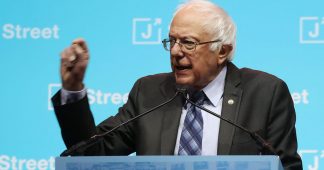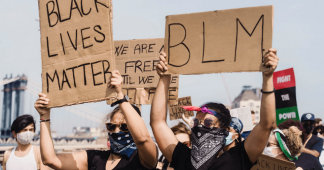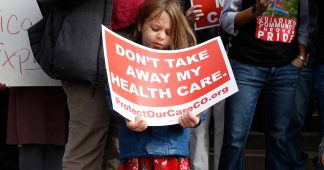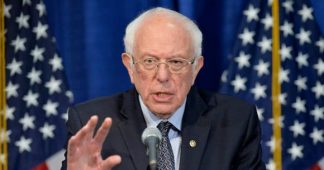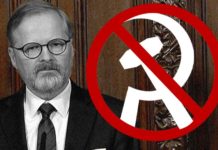by Paul Larudee
Jun 28, 2020
In Part I, we examined the creation of a Universal Basic Income (UBI) – an extension of the Social Security system – as a means of empowering Blacks, Native Americans, the poor and all Americans by endowing them with a minimum of financial security and independence, and by eliminating poverty. This is one of the major prerequisites for combatting racism and police brutality as well as other problems in our society, by shifting more economic power to the people and away from the oligarchs and corporations. Economic power and security is a main element in political power.
In this installment, we will propose a parallel system of health security through reform of Medicare and its extension to all Americans. Differences in access to health services also create differences in power within a society. A private health care system that is tied to employment makes the employee unnecessarily dependent on the employer. Those who do not have or cannot afford health insurance are liable to have their assets liquidated by a single major illness.
The COVID-19 pandemic has exposed the extreme inadequacy and inequity of the US health system. In no other major nation is it part of a system of the pursuit of wealth rather than the pursuit of health. How can we effectively fight a pandemic when the victims are required to pay for their protection from it? Those who are unable to do so not only are untreated, but are spreading the disease to the rest of the population merely because the society is not covering the cost. This results in disempowering and rendering vulnerable those who cannot afford or may be ineligible for insurance. For the security and wellbeing of the all persons and for the nation as a whole, the US needs a national comprehensive free health service that covers all health requirements, including dental services.
It is well known that other nations possess national health plans that are without cost to the users, only to the taxpayers. Medicare would be such a plan if it were extended to all Americans and if the gaps and co-pays were eliminated. This would be easy to accomplish if it were not for the greed of the HMOs, insurance companies and pharmaceutical industries that are blocking and sabotaging such proposals.
Medicare already provides health care for Americans over 65 years of age and the disabled. That is a huge chunk of the national health care need, because these are the main users of health care services. Those who paid for their own insurance before they were eligible for Medicare may remember what their insurance premiums were before they turned 65. Can you imagine what they would be if they didn’t have Medicare? A person 70 years or older could easily be paying $25,000 per year for medical services. The premiums for younger, healthier persons are a mere fraction of this amount, which means that extending Medicare to everyone is very affordable.
In fact, it results in a net national savings to Americans. The cost of Medicare for All is actually less than the cost of all the health insurance premiums that individuals and companies are currently paying for that same population. Or would be paying if all could pay or qualify for such insurance. And Medicare should be the recourse for such persons in any case. The national cost for uninsured is actually very high in terms of suffering, death, lost wages, productivity and emergency room charges that never get paid or are paid by the taxpayer. Medicare for All is essential for empowerment of the poorest, weakest and most marginalized of our society, and it provides health security for everyone.
There are other benefits and savings, as well. Medicare for All makes employer-tied medical insurance benefits obsolete, saving employers a significant labor cost and obviating the need for the employee to change coverage when changing employer or during periods of unemployment. It is surprising that employers throughout the U.S. are not demanding Medicare for All.
